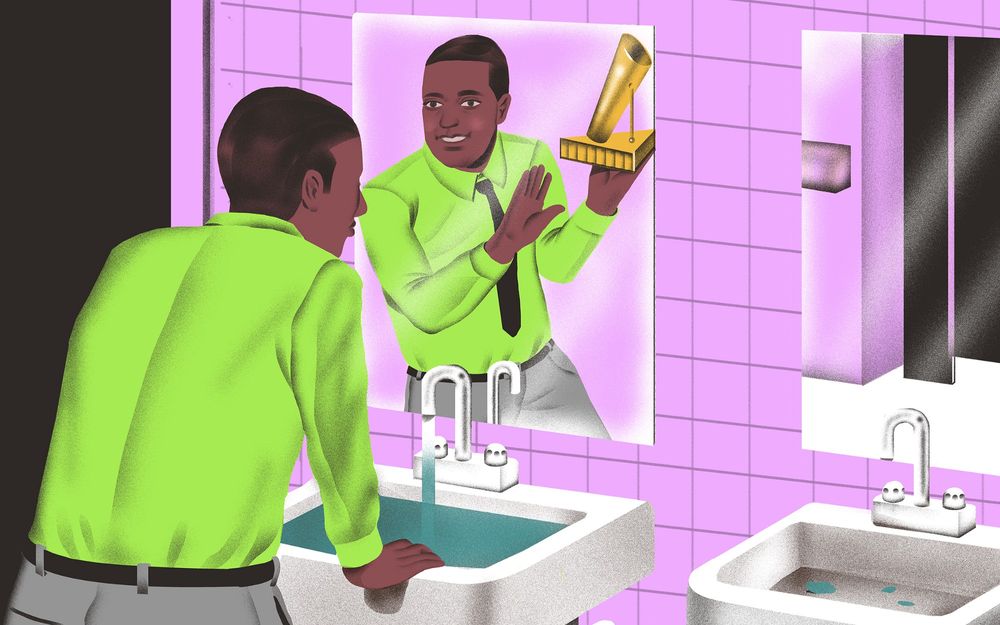When I started my current job, my co-workers insisted that it’d take a minute to get fully acclimated and comfortable with my role. But that didn’t stop the negative thoughts from creeping in.
The first two months were objectively fine. My team was supportive and eager to provide guidance in areas of my job where I was struggling. Folks were clear and encouraging about the intricacies of my department. Even as I was still learning, I nabbed an average evaluation (three stars!) in my first performance review. You’d think that would be reassurance enough, right?
Well, since then, Covid-19 has transformed life around the world. And for me, professionally, it’s amplified some insecurities as the newest guy on the team. There are still aspects of the job that I’m figuring out, but now that my whole company is working from home, there’s a whole new cadence to adapt to — without the benefit of being in the same space as the people who would usually advise me.
When you’re working from home, nobody really has visibility on what anybody is doing at any given time. Sure, I send my end-of-day emails to supervisors to keep them abreast of what I got done, and my focus for the next day. But often I wonder: Is it enough? Is this actually aligned with my goals in this position with this company, or am I being counterproductive? Is there more expected of me since I’m working from home, rather than in an office?
It can activate a preexisting impostor syndrome — like I’m underperforming or I don’t belong in my seat, and it’s only a matter of time before the jig is up. Being one of very few people of color at the job can intensify that feeling. Usually I’m self-aware enough to know that it’s a bullshit way of thinking, but sometimes the self-talk can still get to me.
Sure, I’ll fail along the way, but I can fail fast, adjust, and improve. It’s not really about winning or losing; it’s about taking Ls — real or perceived — and turning them into lessons.
It helps to stay organized by making checklists of daily tasks and deliverables I need to get done, with all of the appropriate goalposts; it’s like a Polaris for productivity. I’ll use my weekly check-ins with supervisors to ask how I’m doing. I find that more recently, I’ll come in with doubts, expecting negative feedback, or for them to remind me of something I may have forgotten. Their feedback is usually positive and helpful — they’ll point out the areas where I’m performing well, and indicate ways I can improve in other areas.
There’s something about not being in the same setting as your colleagues — regardless of some of the annoying interactions and microaggressions that come with it — that can make you feel detached and underproductive. Those video chats help to ground me, letting me know I’m not as much of a clown as I sometimes think. The work I’m doing is actually valuable and will feed my professional development.
When my impostor syndrome starts to rear its head, I like to revisit some quotes. One in particular has been written on my chalkboard since I first started the gig (yes, I have a chalkboard at home), because even then there was that fear and self-doubt that’s often attached to beginning a new undertaking. It’s a quote by the late congressman Elijah Cummings: “You must have confidence in your competence.”
I’ve just gotta remember that I’m in this position for a reason, and everything in my career up until this point is more than enough validation. I’ve learned to use those fears of inadequacy as motivation. I just need to test the impostor syndrome, challenge it, and prove it to be untrue. It also helps to look back at past Ws: accounts I’ve secured, positive reports from previous jobs, the dope campaigns I’ve coordinated. Sometimes you just have to remind yourself who the fuck you are.
It all comes down to Cummings’ quote, even in times when I’m not so sure of myself. Sure, I’ll fail along the way, but I can fail fast, adjust, and improve. It’s not really about winning or losing; it’s about taking Ls — real or perceived — and turning them into lessons. As long as you’re constantly learning, you can never lose.

Comments
Leave a comment